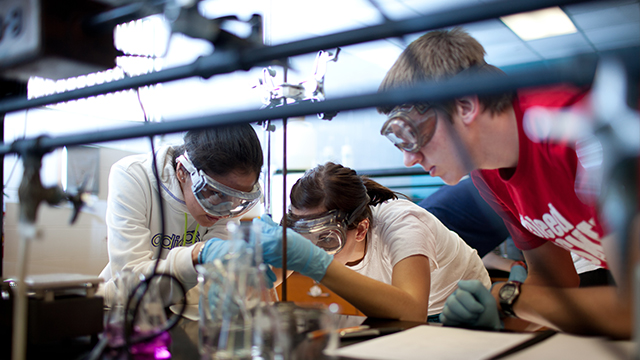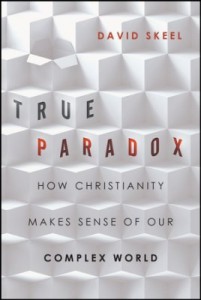The Perceptions Project — The Perceptions Project, a three-year endeavor spearheaded by the American Association for the Advancement of Science (AAAS) program of Dialogue on Science, Ethics, and Religion (DoSER) brings together scientists and religious leaders (especially evangelicals) for conversation about how members of these influential communities view one another and how relations between them […]
Items included on this page come from a variety of sources. The perspectives conveyed may or may not express a Lutheran ethos. They can serve our instruction as discussion-starters, examples (positive and negative), and illustrations of intersections between God’s two kingdoms, intersections sometimes characterized by tension, sometimes by congruence. Inclusion does not imply endorsement.

Combining the DNA of Three People Raises Ethical Questions
Combining the DNA of Three People Raises Ethical Questions — NPR’s 8 min audio clip on procedures to create human embryos with recombinant mitochondrial DNA in order to eliminate some hereditary disorders. The report can serve as a current relevant example in science ethics and biblical anthropology.
Religious Belief and Faith as Rational
Religious Belief and Faith as Rational — These two Cosmos and Culture articles can be used to introduce the reader or student to current themes in psychology and religion. While the ideas are not new (Hume, Schlierermacher, Otto, etc.), these themes are being reexamined in today’s context of the cognitive sciences which may actually tend […]
Science, Religion, and the Assumptions We Make
Science, Religion, and the Assumptions We Make — A brief piece on presuppositions in religion, science, and life by Br. Guy Consolmagno, SJ, research astronomer at the Vatican Observatory. His new book is called Would You Baptize an Extraterrestrial? (Image, 2014).
Fixing Faulty Genes and Re-writing the Genome
Fixing Faulty Genes and Re-writing the Genome — An interesting 8 min. audio clip that ponders the pros and cons of gene editing with one of the pioneer scientists of this potentially beneficial and alarming research. Useful for courses in biology, genetics, ethics, theology, sociology, and research methods.
Art and Craft: Free Will, Sin, Biochemistry, Art Forgery, Psychopathology, and Jurisprudence
Art and Craft: Free Will, Sin, Biochemistry, Art Forgery, Psychopathology, and Jurisprudence — Very hard to categorize, this remarkable case involves a bipolar forger who gives away his work under false but not criminal pretenses. Students may find this a fascinating cross-discipline case study involving theology, biology, psychology, criminology, and assorted other -ologies.
An Open Letter to Richard Dawkins from Lincoln, NE
An Open Letter to Richard Dawkins from Lincoln, NE — The writer responds to Dawkins’ recently advocating a moral imperative to abort children conceived with Down Syndrome and invites him to dinner. A possible starter for course content on ethics, public discourse, conflict resolution, the culture wars, and normative secularism.
Robert Barnes: Martyr Caught Between the Kingdoms
Robert Barnes: Martyr Caught Between the Kingdoms — This 20 min. audio clip from Matt Phillips is an interesting introduction to the early Lutheran martyr, Robert Barnes, executed by Henry VIII in 1540. Useful as a unit set or historical case study for studies in church and state, church and society, history of diplomacy, Bonhoeffer […]
TechnoReligion: Transcendence Through Technology
TechnoReligion: Transcendence Through Technology — Organized around four core tenets—“life is purposeful, death is optional, God is technological, and love is essential”–Terasem is a “transreligion,” (meaning that you don’t have to give up being Christian or Jewish or Muslim to join) in which you can beam a digital copy of yourself into space.
Does Science Have Limits?
Does Science Have Limits? — Marcelo Gleiser, NPR science blogger and physics prof at Dartmouth College, is among the more modest of the popular science writers. His new book is called The Island of Knowledge: The Limits of Science and the Search for Meaning (Basic Books, 2014), in which he examines the limits of science […]

 True Paradox: How Christianity Make Sense of Our Complex World
True Paradox: How Christianity Make Sense of Our Complex World